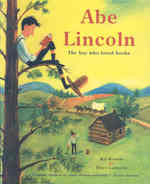- ホーム
- > 洋書
- > 英文書
- > Philosophy
Full Description
Philosophy's relation to the act of writing is John T. Lysaker's main concern in Philosophy, Writing, and the Character of Thought. Whether in Plato, Montaigne, Nietzsche, Wittgenstein, or Derrida, philosophy has come in many forms, and those forms—the concrete shape philosophizing takes in writing—matter. Much more than mere adornment, the style in which a given philosopher writes is often of crucial importance to the point he or she is making, part and parcel of the philosophy itself.
Considering each of the ways in which writing influences philosophy, Lysaker explores genres like the aphorism, dialogue, and essay, as well as logical-rhetorical operations like the example, irony, and quotation. At the same time, he shows us the effects of these rhetorical devices through his own literary experimentation. In dialogue with such authors as Benjamin, Cavell, Emerson, and Lukács, he aims to revitalize philosophical writing, arguing that philosophy cannot fulfill its intellectual and cultural promise if it keeps to professional articles and academic prose. Instead, philosophy must embrace writing as an essential, creative activity, and deliberately reform how it approaches its subject matter, readership, and the evolving social practices of reading and reflection.
Contents
Gambits and Gambles
Iron Filings
Pardon the Interruption
Content and Form
Form and Content
In the Beginning Was the Deed
Reworking Making
Deliberate Writing
Mistaking Instrumental Reason
Fits and Starts
A Cultivar
Quotation beyond Quotas
For Examples
In Nuce
Irony
Message in a Bottle
The Hour of the Wolf
It's the Gesture That Counts
Furnishing the Space of Reasons
A Struggle with Ourselves
Who's on First
Every One Is Everybody
The Secret Addressee
When We Undo Things with Words
Unknown Friends
Resoundingly Reticent
Provocation/Demonstration
Among the Pros (and Cons)
A: "O my friend, there are no friends." B: "At least we've got each other."
Then Came History
Equal to the Moment
Unequal to the Moment
After Beauvoir
Property Is Theft
Strange Alchemy
Public Commitment
Propagation without Propaganda
Bit by Bit
Taking Stances
Character Studies
Where Do We Find Ourselves
Acknowledgments
Notes
References
Index








